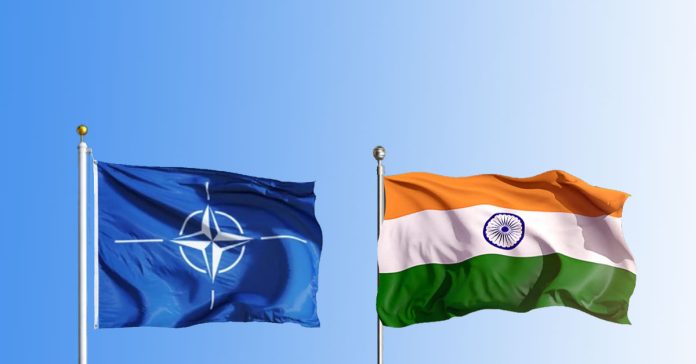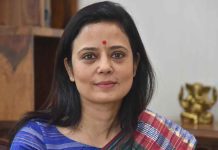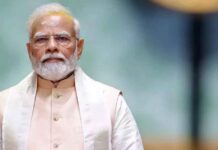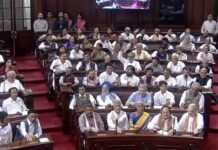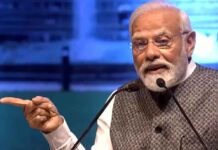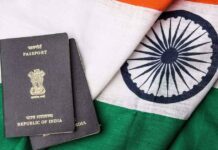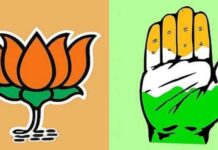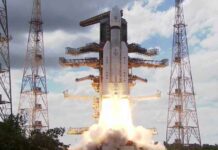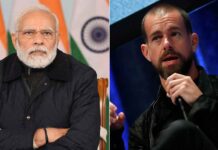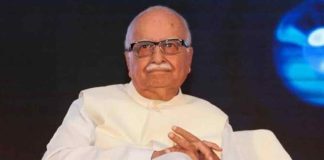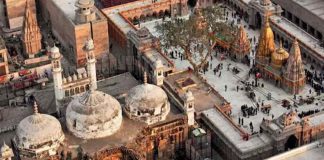On July 14, US House of Representatives approved an amendment with an overwhelming majority to the National Defense Authorization Act (NDAA). This amendment was proposed by progressive Democrat Ro Khanna. It is supposed to deepen India- US defense ties. He further proposed that India should become the sixth nation in NATO PLUS arrangement to strengthen the bilateral defense relations.
Avaaz24 shall analyze what NATO is and whether India should join it or not?
What is NATO?
North Atlantic Treaty Organization is an intergovernmental military alliance between 30 member states [28 European and 2 North American –US & Canada]. It is initially formed against Soviet Union. It is established in 1949 aftermath of World War II by North Atlantic Treaty or Washington Treaty.
NATO has a system of collective security i.e. independent member states agree to defend each other against third party attack. Further, NATO doesn’t provide protection to civil wars and internal coupes. Interestingly, USA contributes roughly 3/4th of NATO’s budget.
What is NATO PLUS 5?
NATO PLUS 5 is NATO and 5 allies of US- Australia, New Zealand, Japan, Israel and South Korea.
It is an arrangement to bring together five allies of US and NATO countries to boost global defense cooperation.
The recent proposal by Ro Khanna is about India becoming 6th nation to NATO PLUS, to promote defense security ties with US.
Should India join NATO?
Alignment or Non Alignment?
During Cold War India refused to join any of the military bloc (NATO or Warsaw pact of USSR).
Now, a formal NATO membership would tilt India more towards the west. Thus India will lose its balance in international relations and fall into a single alliance. This is against our foundational concept of Non- Alignment. Non- Alignment always holds relevance to maintain world peace.
Creation of deterrence or unnecessary conflicts?
Article 5 of NATO treaty says that if a member nation of NATO is attacked all the members would call for joint military action. Thus, by joining in NATO, deterrence can be created against China & Pakistan when they attack India.
At the same time, India would be dragged into many unnecessary conflicts around the globe. Many of our soldiers would die in those battles. This is against the spirit of our nation.
Non-violence as proposed by our father of the nation is the mightiest weapon. Peaceful resolution always exists for any conflict. We may not need any deterrence at all.
Military strategic benefits or issues of sovereignty?
Engagement with NATO could facilitate productive developments against terrorism and provide emerging military technologies. But, it will establish NATO bases in India’s Territory. It would raise concerns on our sovereignty.
US or Russia? Who is our ally?
India needs friendly relations with both US and Russia. We require Russian support in the Central Asian countries. US help is needed in the Indo-Pacific.
India-US-Russia:
Despite India’s professed nonalignment, it had over time edged closer to the Soviet Union. Reasons can be explained as follows:
War of Independence:
During Second World War, Jawaharlal Nehru asked US president Franklin D. Roosevelt to persuade Britain to grant India its independence. Roosevelt did not pursue the matter, leaving Nehru disappointed.
Post Independence- Industrialization:
Post independence, PM Nehru had an ambitious plan to industrialize India. He wanted to make the country self-reliant. But, lack of capital and expertise required the country to partner with others.
US initially had negotiations to build steel plant at Bokaro. But fundamental differences in economic ideology ruptured negotiations. In the end, Soviet Union stepped in to rescue.
Great Famine of 1966:
In March 1966, during the times of Great Famine, our Indian PM Indira Gandhi traveled to Washington to request food aid. The World Bank and the White House put pressure on her to devalue the Indian rupee.
Even though, we agreed, the promised aid was made slow in arrival. The then President Lydon B Johnson used food aid as weapon, to counter India’s criticism on US policy towards Vietnam.
India Pakistan War of 1971:
During India Pakistan War of 1971, US, UK and China all were on Pakistan side. US dispatched US TASK FORCE 74 into Bay of Bengal while UK dispatched air carrier HMS Eagle in the Arabian Sea
To counter this two-pronged British American threat, Russia dispatched nuclear armed flotilla as per 1971 India- Soviet Union Peace and Friendship treaty. Thus India’s political leadership worked well to set up the victory and liberation of Bangladesh.
Kashmir Issue:
Russia’s support on Kashmir issue is politically significant. It vetoed United Nations Security Council resolutions in 1957, 1962 and 1971 that called for international interventions in Kashmir.
Defense Sector:
As a result of all these factors, India came to rely heavily on Soviet Union for its military equipment.
Today, from 2000-2020, Russia accounted for more than 65% of Indian arm imports.
US suspicious of Indo-Soviet relationship, refused to sell India sophisticated weapons. It continued to strengthen Pakistan’s military. US never permitted India to manufacture arms domestically through joint ventures.
When India tried to acquire Arrow Missile defense system from Israel, the deal was blocked by US. Then, Russia supplied us S-400 missiles. In addition, Russian weaponry are less expensive than US ones.
India has been operating Chakra series of Russian nuclear-powered attack submarines on lease. 9 out of 14 conventional submarines operated by India are Russian. India’s only aircraft carrier in service INS Vikramaditya is of Russian origin.
The world’s fastest cruise missile Brahmos is the product of India Russia joint venture. Of the 30 squadrons of Indian Air Force, majority are Russian.
India’s first and only overseas military base- Gissar Military Aerodrome in Tajikistan was secured with Russian Aid in late 1990’s.
Space Programme:
Before developing Polar Satellite Launch Vehicle (PSLV) India relied on Russia to launch its first two satellites. Aryabhatta was launched on Kosmos rocket in 1975. Bhaskara on Intercosmos vehicle in 1979.
Under the same Intescosmos programme, India’s Rakesh Sharma became our first citizen to travel to space.
For India’s first manned space flight mission, Gaganyaan four Indian astronauts have undergone generic space flight training programme in Russia.
Recently, a MoU is signed between ISRO and ROSCOMOS for Human Space Lift Programme.
Nuclear Energy:
Even though US financed India’s first nuclear power plant at Tarapur, Maharashtra, India refused to sign Nuclear Non Proliferation Treaty in 1968.
In 1974, when India carried out its inaugural nuclear weapons test, US had cut off fuel deliveries to our Nuclear power station as punishment. At that time, Soviet Union agreed to supply heavy water to India.
Further, US imposed sanctions on India. It created Nuclear Supplies Group excluding India.
Despite US normalizing India’s civil nuclear programme, Russia is the biggest benefactor of our nuclear market today. Kudankulam nuclear power project in Tamil Nadu, Tarapur Reactor in Maharashtra etc. are built in collaboration with Russia.
Russia-Ukraine conflict:
On Ukraine issue, India asked both Ukraine and Russia to stop military operations. It gave humanitarian assistance to Ukraine. Thus, India played a role in peace making. This is what Gandhi advocated us.
Conflicting China:
China has formed the Sino-Pak axis to deal with India and is openly supporting Pakistan on the Kashmir issue.
It is going ahead with China Pakistan Economic Corridor project in Pakistan Occupied Kashmir (POK). China keeps on provoking Nepal to raise border issue with India. In Bhutan, it is demanding areas which would move tri junction southwards the critically narrow Siliguri corridor.
In view of the above neighborhood issues, to deal with China at the border, India needs at least neutrality of Russia.
Considering our past good relation and aid from Russia, India becoming a NATO’s member and inclining towards US would deteriorate our relations with Russia.
Thus, in today’s multi polar world India has to advance its national interests by identifying and exploiting contraindications created by global relations.
NATO countries must be an important part of India’s foreign policy, but India must refrain from becoming formal member of NATO.
ALSO READ: Google launches Street View in India, leaving underlying concerns unaddressed

